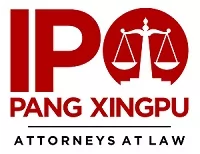The term "Mainland China" (with an upper-case "M") is a political rather than geographic designation. It refers to the territory of China minus Hong Kong, Taiwan, and Macau, which issue their own currencies and enforce their borders with immigration barriers requiring document inspection. If your company seeks to hire employees from these regions to work in Mainland China, the rules are a little different than they are for either foreign nationals or local Chinese.
Permission to Enter Mainland China
The type of permission you need to enter Mainland China depends on where you are from. "Where you are from," in turn, depends on where your household registration is. Taiwanese, for example, need a different document than Hong Kong and Macau travelers do. These documents function as unofficial "passports."
The Mainland Travel Permit for Taiwan Residents
Although the government in Taipei does issue passports, for political reasons, Beijing does not recognize their validity. Instead, to enter or leave Mainland China, Taiwanese can apply for the Mainland Travel Permit for Taiwan Residents, known in some circles as the Taiwan compatriot permit (台胞证), in lieu of a PRC passport.
A Taiwanese can apply for this document at the China Travel Service in Hong Kong or Macau. The length of stay is determined by the expiration date of the permit; alternatively, in most cases, it is possible to renew the permit. Although the Mainland Travel Permit can also be used to enter and leave Hong Kong and Macau, Hong Kong and Macau also recognize Taiwan-issued passports. Mainland Travel Permits are also used for general identification purposes.
A Taiwanese who does not hold household registration in Taiwan but is eligible for a Taiwan-issued passport must apply for a Chinese Travel Document from a PRC embassy or consulate abroad (they are not available in Hong Kong or Macau). The length of stay of a Chinese Travel Document could be much shorter (three months, for example) compared to a Mainland Travel Permit.
The Mainland Travel Permit for Hong Kong and Macao Residents
The Mainland Travel Permit for Hong Kong and Macao Residents is issued by the Entry and Exit Administration in Hong Kong, Macau, and Mainland China. Three types of people are eligible to receive one:
- Permanent residents of Hong Kong or Macau possessing Chinese nationality by birth or naturalization;
- Mainland residents who have legally immigrated to Hong Kong or Macau and have established residency there; and
- Permanent residents of Hong Kong and Macau, born elsewhere but possessing Chinese nationality by birth, descent, or naturalization.
Most permits are valid for ten years, but permits issued when the holder was under 18 are valid for only five years.
Dual Nationals
Many Hong Kong people also hold citizenship in the United Kingdom or other countries, and some residents of Macau and Taiwan hold dual nationality as well. People with Macau or Taiwan household registration, who are dual nationals, must use their foreign passports to enter Mainland China, and they must comply with PRC visa requirements for the nation whose passport they hold. Hong Kong residents, by contrast, may utilize a permit designed to allow them to visit relatives in Mainland China, which essentially allows Hong Kong residents to remain in Mainland China for up to 10 years at a time.
People holding PRC citizenship from Mainland China who obtain a Mainland Travel Permit based on residency in Hong Kong should be aware that Beijing does not recognize dual citizenship for the PRC and a foreign country. If such a person attempts to enter China on a foreign passport, Beijing will revoke their PRC citizenship. Hong Kong, however, does allow dual citizenship.
Residence Permits
Since September 1, 2018, residents of Hong Kong, Macau, and Taiwan have been eligible to apply for "HMT Residence permits" under the Regulations for the Application of Residence Permits for Hong Kong, Macao, and Taiwan Residents. Gaining full residence in Mainland China is a two-step process:
- The applicant (who must be of Chinese descent with permanent residency in Hong Kong, Macao, or Taiwan) applies for and is granted HMT Resident status.
- An HMT Resident may be granted a general PRC Residence Permit if they apply after at least six months of residence in Mainland China and if they (i) have a stable job, (ii) have a legitimate and stable residence, or (iii) are enrolled in and continuously attending an education course.
PRC Residence Permits are valid for up to five years but can be renewed. A PRC Residence Permit allows the holder to:
- Work in China;
- Participate in a social insurance scheme;
- Contribute to, receive, and use housing funds;
- Send their children to public schools in Mainland China;
- Take advantage of legal pro bono services;
- Qualify for a driver's license;
- Take advantage of childbirth services; and
- Use various other public services that are normally not available to foreigners and non-residents.
Employment
Formerly, HMT Residents needed work permits to work in Mainland China. In 2018, however, the work permit requirement was abolished. HMT residents can use their Mainland Travel Permits (see above) instead of their work permits as identification to accomplish tasks such as registering for social security. The abolition of the work permit requirement removes much of the incentive for an HMT resident to apply for a PRC Residence Permit.
Lingering Questions for Employers
It is typical for new Chinese legislation to be followed by many questions that only an enforcement history, or additional regulation, can answer. At present, given the rapid liberalization of the rules concerning the residence and employment rights of HMT Residents, many questions are still up in the air, including:
- In general, to what extent HMT residents will be included within PRC labor protection laws (formerly they were excluded from some of these protections, just as foreign nationals still are). This uncertainty is particularly acute with respect to HMT residents who hold dual nationality.
- Whether or not the employer is required to enroll HMT Residents in all types of social insurance and housing funds. This is required for Mainland Chinese employees.
- Whether or not an employment contract can deviate from the mandatory terms and conditions under which PRC labor law (up until now, this was permitted for HMT residents in some cities, but not for Mainland Chinese employees).
- Whether or not the requirement that foreign company Representative Offices employ local nationals, only using local staffing agencies such as FESCO, now applies to HMT Residents as well.
- To what extent will HMT Residents be subject to local taxes, and whether they will be taxed on their worldwide income or only on their PRC-sourced income.
The content of this article is intended to provide a general guide to the subject matter. Specialist advice should be sought about your specific circumstances.

